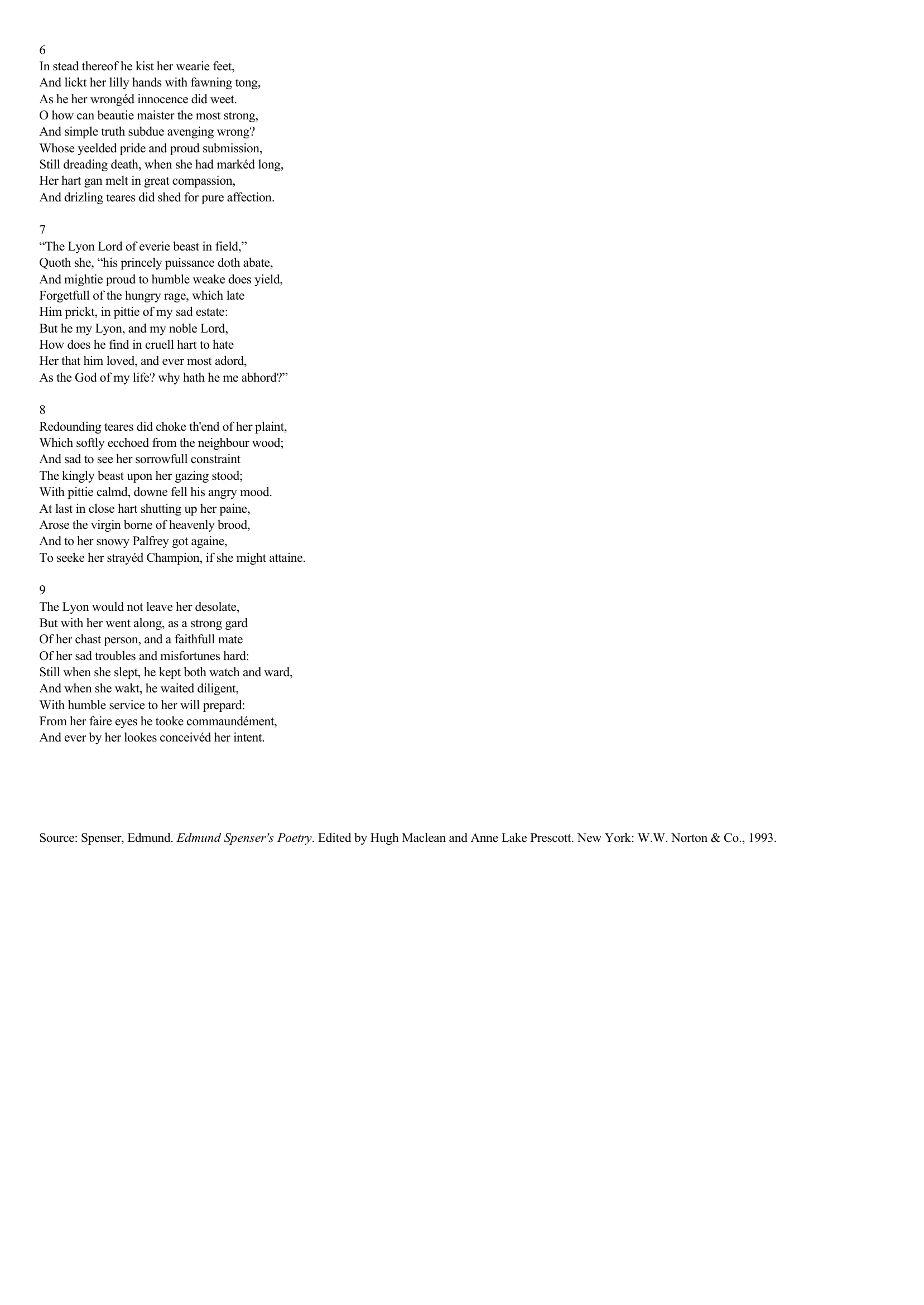The Faerie Queene - anthology.
Publié le 12/05/2013

Extrait du document
«
6In stead thereof he kist her wearie feet,And lickt her lilly hands with fawning tong,As he her wrongéd innocence did weet.O how can beautie maister the most strong,And simple truth subdue avenging wrong?Whose yeelded pride and proud submission,Still dreading death, when she had markéd long,Her hart gan melt in great compassion,And drizling teares did shed for pure affection.
7“The Lyon Lord of everie beast in field,”Quoth she, “his princely puissance doth abate,And mightie proud to humble weake does yield,Forgetfull of the hungry rage, which lateHim prickt, in pittie of my sad estate:But he my Lyon, and my noble Lord,How does he find in cruell hart to hateHer that him loved, and ever most adord,As the God of my life? why hath he me abhord?”
8Redounding teares did choke th'end of her plaint,Which softly ecchoed from the neighbour wood;And sad to see her sorrowfull constraintThe kingly beast upon her gazing stood;With pittie calmd, downe fell his angry mood.At last in close hart shutting up her paine,Arose the virgin borne of heavenly brood,And to her snowy Palfrey got againe,To seeke her strayéd Champion, if she might attaine.
9The Lyon would not leave her desolate,But with her went along, as a strong gardOf her chast person, and a faithfull mateOf her sad troubles and misfortunes hard:Still when she slept, he kept both watch and ward,And when she wakt, he waited diligent,With humble service to her will prepard:From her faire eyes he tooke commaundément,And ever by her lookes conceivéd her intent.
Source: Spenser, Edmund.
Edmund Spenser's Poetry .
Edited by Hugh Maclean and Anne Lake Prescott.
New York: W.W.
Norton & Co., 1993..
»
↓↓↓ APERÇU DU DOCUMENT ↓↓↓
Liens utiles
- From Bulfinch's Mythology: The Unicorn - anthology.
- From Bulfinch's Mythology: The Trojan War - anthology.
- From Bulfinch's Mythology: The Phoenix - anthology.
- From Bulfinch's Mythology: The Golden Fleece - anthology.
- From Bulfinch's Mythology: The Myrmidons - anthology.


